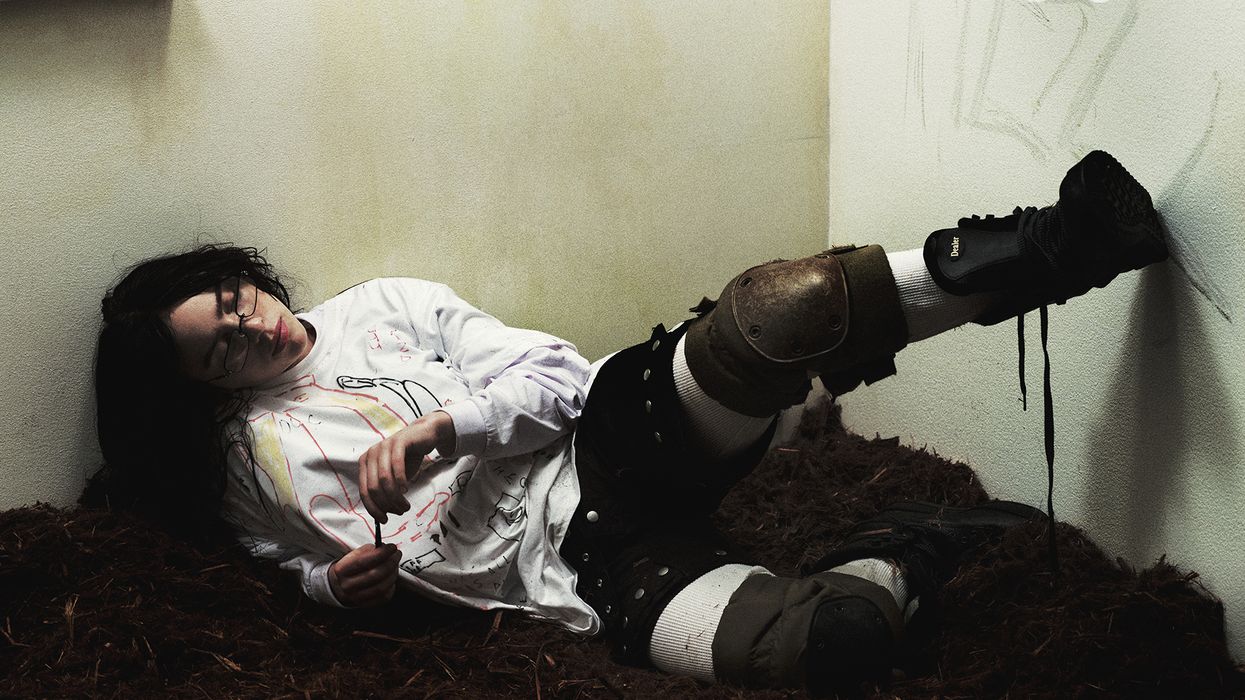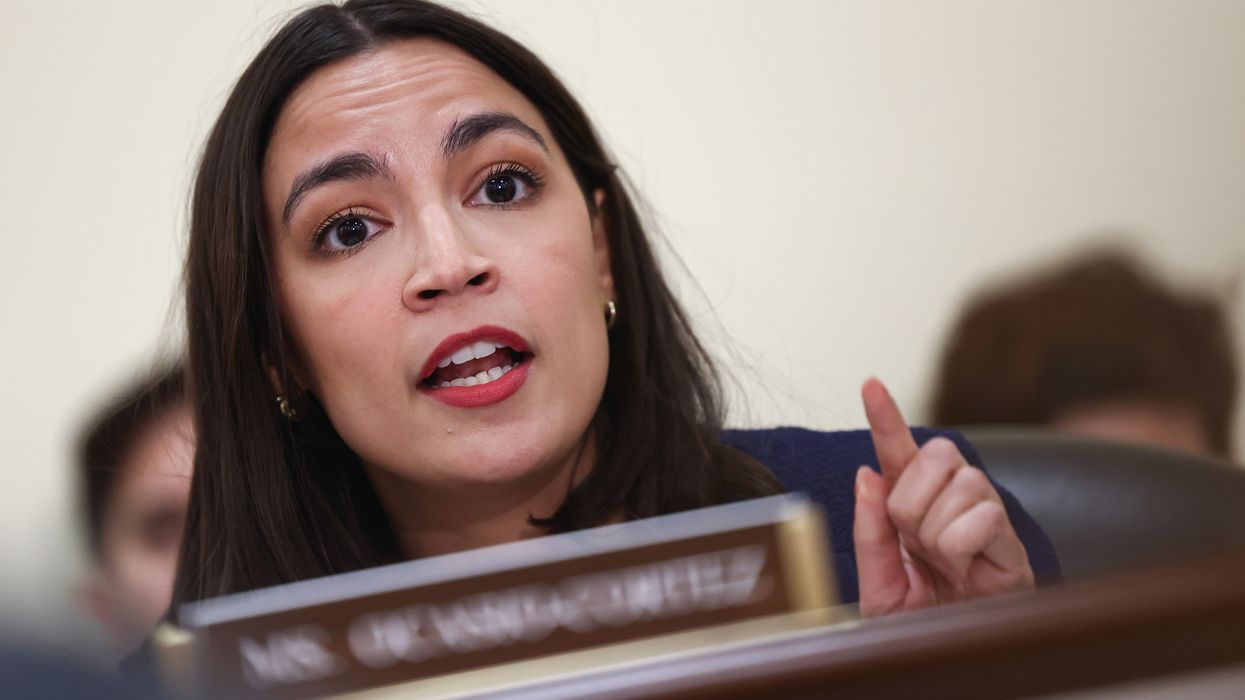“One size fits most”
It’s the guiding ethos behind the cult classic Gen-Z clothing brand Brandy Melville, known for its Americana aesthetics and stylized social media presence beloved by pre-teen girls across the country. But in the new Max documentary Brandy Hellville & the Cult of Fast Fashion, Oscar winning director Eva Orner explores a behind-the-scenes look at the company culture and dozens of allegations of racism, anti-feminism, fatphobia, and abhorrent fast fashion business and production practices.
The popular Instagram account and retail empire first opened a brick-and-mortar store in 2009. While the company itself was started by Italian father and son manufacturing duo Silvio and Stephan Marsan, Brandy Melville defined itself on social media for its simple (read: skinny) silhouettes and California teen style — a look heavily promoted by both popular celebrities and content-producing teen girls on platforms like Tumblr, YouTube, and eventually TikTok. The brand sold clothes without sizes and became known for marketing and hiring practices that pushed skinny, white, and beautiful young girls as their target demographic. (Neither the founders nor the brand participated in the documentary.)
But according to the documentary, behind the scenes was a company culture that prioritized thinness and whiteness over anything else, often at the emotional expense of its workers. Several former employees spoke out, describing that they were required to take daily photos of their outfits, which were then sent to Stephan Marsan over text. “If Stephan didn’t like some of them, he would send it back to me privately and say, ‘Fire her,’ ” a former Brandy executive said anonymously in the documentary.
Workers of color alleged that while their white counterparts were placed at the front of the store as greeters, Asian workers were constantly forced to work the checkout counter, while Black workers were relegated to fitting room associates and stockroom employees, where they would be out of the view of shoppers. “We were all being pushed to the back, out of sight,” Kali, a Black former Brandy Melville employee recounted. “But it wasn’t something we were necessarily mad about, because I loved being around my people, like people of color.” Workers also detailed either developing or continuing disordered eating practices while working at the store, and feeling like they had to choose between keeping their jobs or saving their relationships with food. (Representatives for Brandy Melville did not respond to Rolling Stone’s request for comment. The brand’s chief executive Marsan could not be reached.)
As movements like body positivity and neutrality have begun to impact the fashion industry, criticism of Brandy Melville’s lack of size inclusivity has been consistent for years without any reported effect on the store’s sales. But the documentary also alleges that company culture inside the brand veered toward racism and antisemitism. In a 2021 investigation, Insider reported that a 30-plus person Brandy group chat — which included Marsan, his brother Yvan, and the company’s chief financial officer — was riddled with memes, porn, and jokes about Hitler. In 150 screenshots reviewed by Insider, Hitler was mentioned 24 times and dozens included jokes about Black people and used the n-word.
Stephan also encouraged staffers he and other executives considered pretty to use secretive perks and bonuses, like getting cash tips when they recommended clothing, using a company-paid Uber, or staying at a Brandy Mellville apartment in New York. According to Insider, one Brandy Melville employee stayed at the apartment in 2015 and went out to dinner with a 31-year-old manager. After two drinks, her memory blanked out. The then 21-year-old alleged that she was drugged and raped by the manager and went to the hospital for the recommend HIV and STIs treatment, but declined to pursue charges or file a police report because she was afraid of losing her work visa and having to leave the country.
In addition to allegations of poor treatment by managers and executives, the documentary also focused on Brandy Melville’s production process. While clothes from the brand bear the tag “made in Italy,” further investigation into the company reveals that it outsources much of its textile manufacturing to sweatshops in the Tuscan city of Prato — a region dominated by unethical business practices and what Prato police call slave labor. Brandy Melville is known for its prices usually under $50, which is only achieved through a continuous trend focused production cycle known as fast fashion. (Essentially cheap clothes on demand). But while clothes stay cheap, workers are underpaid. And the excess of brands like Brandy Melville are eventually dumped in countries in the global south like Ghana, where clothes waste has turned their oceans and waterways into dumping grounds. “In the fast fashion conversation for many years, it was ‘If you critique fast fashion, you hate poor people,’” fashion and sustainability expert Aja Barber previously told Rolling Stone. “But that narrative completely erases the fact that the poorest people in the conversation are the garment workers, millions of [whom] make our clothing and aren’t paid fair wages. You’re using poor people as a scapegoat if you can’t see the poorest people in the equation.”
While Brandy Hellville systematically details how the brand allegedly exploited workers and shoppers to make executives more money, an important aspect of the story is that Brandy’s lack of accountability has only furthered the company’s financial gain. After the 2021 Insider expose, Brandy Melville temporarily restricted comments on their social media accounts, but continued selling clothes without an apology or acknowledgement, a strategy that’s allowed the brand to avoid accountability at all turns. “They’re not hypocrites because they’re exactly who they say they are,” Insider reporter Kate Taylor says in the documentary. “They’re just racist sexist pigs.”
But Orner hopes that the documentary will add more pressure on both the company and consumers to reevalute their purchase.
“Right now it feels unstoppable, and the only way to have an impact is to stop buying their clothes,” Taylor told The Hollywood Reporter. “It’s all in the hands of young women. Young women have the power, so they can be creating content about this. They can be talking about it online and in person, and they can stop shopping there.”
















